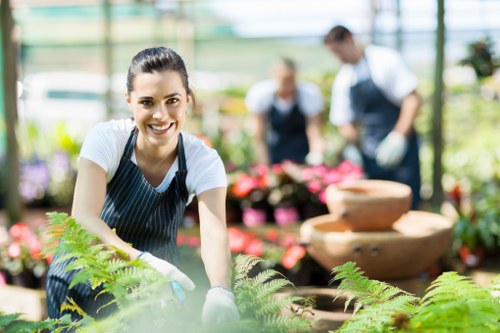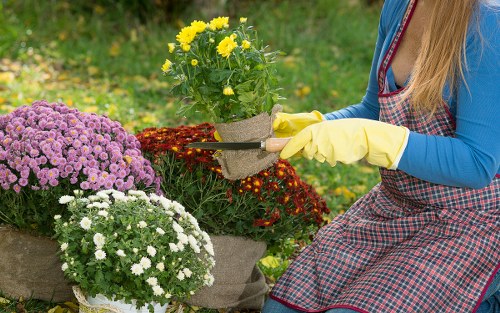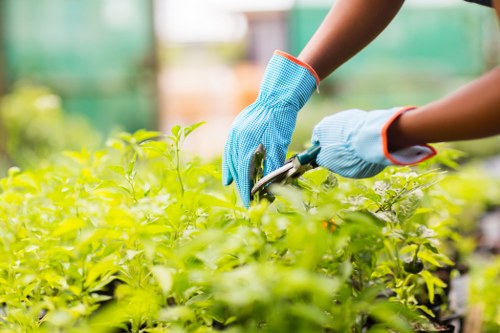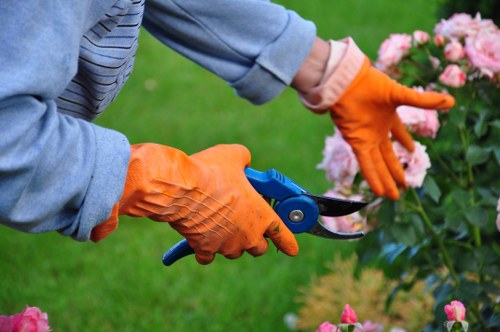Comprehensive Guide to Garden Maintenance in Corinda

Introduction to Garden Maintenance in Corinda
Maintaining a beautiful garden in Corinda requires a combination of careful planning, regular upkeep, and knowledge of the local climate and soil conditions. Whether you’re a seasoned gardener or just starting, understanding the essentials of garden maintenance can transform your outdoor space into a lush, vibrant haven.
Corinda, known for its picturesque landscapes and community spirit, offers a unique environment for gardening enthusiasts. The region’s climate is conducive to a wide variety of plants, making it an ideal location for cultivating diverse flora.
In this article, we will explore the key aspects of garden maintenance in Corinda, providing you with actionable tips and insights to keep your garden thriving all year round.

Essential Garden Maintenance Tasks
1. Regular Watering
One of the most critical aspects of garden maintenance is ensuring that your plants receive adequate water. In Corinda's climate, it's essential to establish a consistent watering schedule to prevent under or over-watering.
Best Practices for Watering
- Early Morning: Water your plants in the early morning to reduce evaporation and allow foliage to dry before evening.
- Deep Watering: Encourage deep root growth by watering thoroughly rather than shallow, frequent watering.
- Soil Check: Use a soil moisture meter to determine when your garden needs watering.
2. Soil Management
Healthy soil is the foundation of a thriving garden. In Corinda, the soil composition can vary, so it's important to test and amend your soil as needed.
Soil Improvement Techniques
- Composting: Add organic matter to improve soil structure and fertility.
- pH Balancing: Test soil pH and adjust using lime or sulfur to suit your plants' needs.
- Mulching: Apply mulch to retain moisture, suppress weeds, and regulate soil temperature.

Pruning and Weeding
Pruning Techniques
Regular pruning helps maintain the shape of your plants, promote healthy growth, and prevent diseases. Understanding the specific pruning needs of your plants is essential.
Tools for Effective Pruning
- Pruning shears for small branches
- Pruners for medium-sized stems
- Pruning saws for larger branches
Weed Control
Weeds compete with your garden plants for nutrients and water. Implementing effective weed control measures is crucial for maintaining a healthy garden.
Natural Weed Removal Methods
- Manual Removal: Regularly inspect your garden and remove weeds by hand.
- Mulching: Apply a thick layer of mulch to prevent weed growth.
- Organic Herbicides: Use environmentally friendly herbicides to manage persistent weeds.

Fertilization and Plant Nutrition
Choosing the Right Fertilizer
Fertilizing your garden provides essential nutrients that promote plant growth and resilience. Selecting the appropriate fertilizer depends on your soil's nutrient profile and the specific needs of your plants.
Types of Fertilizers
- Organic Fertilizers: Such as compost, manure, and bone meal, which improve soil health over time.
- Inorganic Fertilizers: Synthetic options that provide quick nutrient boosts.
- Slow-Release Fertilizers: Designed to feed plants gradually, reducing the need for frequent applications.
Application Tips
Proper fertilizer application ensures that plants absorb nutrients effectively without causing damage.
Fertilizing Schedule
- Spring: Begin fertilizing as new growth starts.
- Summer: Apply light feedings to support ongoing growth.
- Fall: Fertilize to strengthen plants for the winter months.

Pest and Disease Management
Identifying Common Pests
Corinda gardens may attract various pests such as aphids, caterpillars, and mites. Early identification is key to preventing infestations.
Natural Pest Control Methods
- Beneficial Insects: Introduce ladybugs and predatory beetles to control pest populations.
- Neem Oil: A natural pesticide that deters many common garden pests.
- Companion Planting: Planting certain species together can repel unwanted insects.
Managing Plant Diseases
Fungal and bacterial diseases can severely affect your garden's health. Implementing preventive measures and timely treatments can mitigate these issues.
Disease Prevention Strategies
- Proper Spacing: Ensure adequate airflow between plants to reduce fungal growth.
- Sanitation: Remove and dispose of infected plant material promptly.
- Resistant Varieties: Choose plant varieties that are resistant to common diseases.
Seasonal Garden Maintenance
Spring Maintenance
Spring is the perfect time to prepare your garden for the growing season. Start by cleaning up any debris from winter and preparing the soil for planting.
Tasks for Spring
- Prune dead branches
- Start new plantings
- Apply compost and fertilizers
Summer Care
Summer requires diligent care to handle heat stress and maintain plant health. Regular watering and shade management become crucial during this season.
Summer Maintenance Tips
- Ensure consistent watering schedules
- Provide adequate shading for sensitive plants
- Monitor for pests and diseases
Choosing the Right Plants for Corinda
Selecting plants that thrive in Corinda’s climate ensures a vibrant and low-maintenance garden. Consider native plants and those well-suited to the local conditions.
Popular Plant Choices
- Native Shrubs: Such as bottlebrush and grevillea.
- Flowering Plants: Including roses, lavender, and sunflowers.
- Vegetables: Tomatoes, cucumbers, and leafy greens.
Benefits of Native Plants
Native plants are adapted to the local environment, requiring less water and maintenance while supporting local wildlife.
Local Services and Support
Corinda offers a variety of garden maintenance services to help you achieve and maintain a beautiful garden. Professional landscapers and garden specialists can provide tailored solutions to meet your specific needs.
Hiring a Garden Maintenance Service
Engaging a professional service ensures that your garden receives expert care, from regular maintenance tasks to more specialized services like landscape design and installation.
Benefits of Professional Services
- Expert knowledge of local plants and conditions
- Time-saving and convenience
- Access to specialized tools and equipment
DIY vs. Professional Maintenance
While DIY garden maintenance can be rewarding, professionals can offer efficiency and expertise that might be challenging to achieve on your own.
When to Consider Professional Help
- Complex landscaping projects
- Lack of time for regular maintenance
- Dealing with persistent pests or diseases
Nearby Areas to Corinda for Garden Maintenance Services
- St Lucia: Just west of Corinda, offering expansive green spaces and professional gardening services.
- Toowong: Known for its lush gardens and expert landscapers, located a short drive from Corinda.
- Wynnum: Featuring coastal gardens and specialized maintenance providers.
- Indooroopilly: Offers a variety of gardening solutions and plant nurseries.
- Tingalpa: Close to Corinda, with services catering to both residential and commercial gardens.
- Norman Gardens: A neighboring area with dedicated garden maintenance professionals.
- Kenmore: Known for its community gardens and skilled landscapers.
- Chuwar: Offers personalized garden maintenance services just south of Corinda.
- Jindalee: Featuring modern garden designs and maintenance expertise.
- Pinjarra Hills: Located nearby with services focused on sustainable gardening practices.
These nearby areas provide a range of options for garden maintenance, ensuring that residents of Corinda have access to top-notch services tailored to their specific gardening needs.
Tips for Sustainable Garden Maintenance
Embracing sustainable practices in your garden not only benefits the environment but also enhances the health and longevity of your plants.
Water Conservation
Implementing water-saving techniques can significantly reduce your garden's water consumption.
Strategies for Conserving Water
- Install a rainwater harvesting system
- Use drip irrigation to target water directly to plant roots
- Choose drought-tolerant plants
Organic Gardening
Adopting organic gardening methods minimizes the use of chemicals, promoting a healthier ecosystem.
Benefits of Organic Practices
- Improved soil health
- Enhanced biodiversity
- Reduced environmental impact
Seasonal Planting Guides
Understanding the best times to plant various species ensures optimal growth and blooming.
Spring Planting
- Annual flowers like marigolds and petunias
- Vegetables such as lettuce and carrots
- Perennials like peonies and hostas
Summer Planting
- Heat-tolerant plants like succulents and zinnias
- Fruit trees that thrive in warmer temperatures
- Herbs such as basil and mint
Autumn Planting
- Bulbs for spring blooming, like tulips and daffodils
- Cool-season vegetables such as broccoli and kale
- Shrubs and trees for winter structure
Winter Preparation
- Protect plants from frost with mulch and covers
- Prune deciduous trees and shrubs
- Plan and design for the upcoming growing season
Integrating Hardscaping with Garden Maintenance
Hardscaping elements like paths, patios, and fences complement your garden's aesthetic and functionality.
Choosing the Right Materials
- Natural Stone: Offers durability and a timeless look.
- Brick: Provides a classic appearance and versatility.
- Wood: Adds a rustic charm but requires regular maintenance.
Design Considerations
When integrating hardscaping, consider how it blends with your garden's overall design and the plants you’ve chosen.
Maintenance of Hardscaping Features
Regular cleaning and inspections ensure that hardscaping elements remain in good condition and continue to enhance your garden's beauty.
Tips for Maintaining Hardscapes
- Remove debris and stains promptly
- Repair cracks and damages to prevent further deterioration
- Seal surfaces to protect against weathering
Lighting and Garden Ambiance
Proper lighting enhances your garden's beauty and extends its usability into the evening hours.
Types of Outdoor Lighting
- Path Lights: Illuminate walkways and ensure safety.
- Spotlights: Highlight specific plants or features.
- String Lights: Create a cozy and inviting atmosphere.
Energy-Efficient Options
Consider using solar-powered or LED lighting to reduce energy consumption and minimize environmental impact.
Creating Ambiance
Combine different lighting types to create layers of light, adding depth and interest to your garden.
Lighting Layout Ideas
- Use lanterns around seating areas
- Install fairy lights in trees
- Place uplights beneath shrubs and trees
Safety Considerations
Ensure that all electrical components are weather-resistant and properly installed to prevent hazards.
Eco-Friendly Garden Practices
Adopting eco-friendly practices contributes to a sustainable environment and promotes a healthy garden ecosystem.
Composting
Creating a compost bin allows you to recycle organic waste, enriching your soil and reducing landfill contributions.
How to Start Composting
- Choose a suitable location with good airflow
- Combine green materials (kitchen scraps) with brown materials (leaves, wood chips)
- Turn the compost regularly to aid decomposition
Rainwater Harvesting
Collecting rainwater reduces reliance on municipal water sources and provides plants with natural, chemical-free water.
Setting Up a Rainwater System
- Install rain barrels at downspouts
- Use a filtration system to remove debris
- Connect barrels to your garden irrigation system
Winterizing Your Garden
Preparing your garden for winter ensures that your plants survive the colder months and thrive when spring arrives.
Protecting Plants from Frost
Use frost blankets or covers to shield sensitive plants during cold snaps.
Mulching for Winter
- Apply a thick layer of mulch around plant bases
- Helps retain soil moisture and regulate temperature
- Prevents soil erosion from winter rains
Pruning and Cleanup
Remove dead or damaged branches to promote healthy growth and reduce the risk of disease.
End-of-Season Tasks
- Clear fallen leaves and debris
- Store garden tools properly
- Plan and design for the next growing season
Winter Planting
Planting winter-resistant species ensures your garden remains lively even in the colder months.
Conclusion and Next Steps
Effective garden maintenance in Corinda combines regular care, sustainable practices, and an understanding of the local environment. By implementing the strategies outlined in this guide, you can cultivate a beautiful and healthy garden that enhances your living space and contributes to the community’s green landscape.
Ready to take your garden to the next level? Contact us today to schedule a consultation or book your service now and enjoy a thriving garden all year round!
